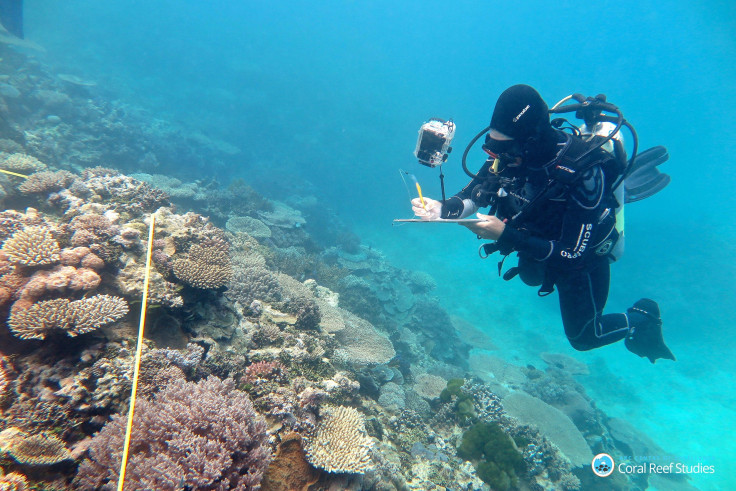Great Barrier Reef Worth Billions: Can You Put A Price On A Wonder Of The World?

The Great Barrier Reef is more important than you ever may have suspected. Not only does the reef provide habitats for more than 1,500 forms of marine life, it also protects the coast of Australia and is one of the seven natural wonders of the world. It’s hard to put a price on something so essential, but the company Deloitte did just that and estimated the value of the reef is astronomical, around $42 billion.
That estimate considers the social, economic and iconic value of the reef that stretches more than 1,500 miles off the coast of Australia. But all of that is at risk with recent major bleaching events that harm the reef and threaten to kill it and everything that lives off it.
Read: Coral Reefs And Climate Change Facts: Massive Bleaching Event May Be Coming To An End
What is coral bleaching:
Corals end up bleached after they undergo great stress. That stress is caused by changes in the environment, the National Oceanic and Atmospheric Administration said. Light, temperature and available nutrients all are essential to the life of corals. When those change, the coral expels the algae living in its tissue. That algae gives the coral its color, so when the algae is gone, the coral appears white. A bleaching event doesn’t always mean the coral definitely will die. If the conditions return to normal quickly enough, the coral has a chance at recovery.
Bleaching events have been happening worldwide since 2015 due to higher than normal ocean temperatures. NOAA estimates this particular bleaching event is coming to an end, good news for reefs that have been suffering for months, including the Great Barrier Reef. But as the climate continues to change, higher ocean and air temperatures are expected, and coral is at a great risk of dying off if it can’t adapt quickly enough.
Read: Your Sunscreen May Be Killing Coral Reefs, Here's A List Of Eco-Friendly Products
The company used publicly available data and a survey of 1,500 Australians and residents from 10 countries around the world to determine the Great Barrier Reef's value, the report said. The reef adds 64,000 jobs to Australia’s economy, and 65 percent of people surveyed said the reef is Australia’s most “iconic” site. Additionally, 61 percent of those surveyed said they believe the reef is “vital to the planet” and two-thirds would pay to protect it, research done by Deloitte indicated. “This report assesses the economic, social, icon and brand value of the Great Barrier Reef. Its purpose is to gauge the Great Barrier Reef’s value to Australians and understand how the international community values it,” the 92-page study from the company says.
The report also notes the reef is priceless and can’t be replaced. But by putting the reef in economic and social terms, it brings the issue of climate change to more people and helps them understand what is actually at stake, the executive summary of the report said.
© Copyright IBTimes 2024. All rights reserved.











